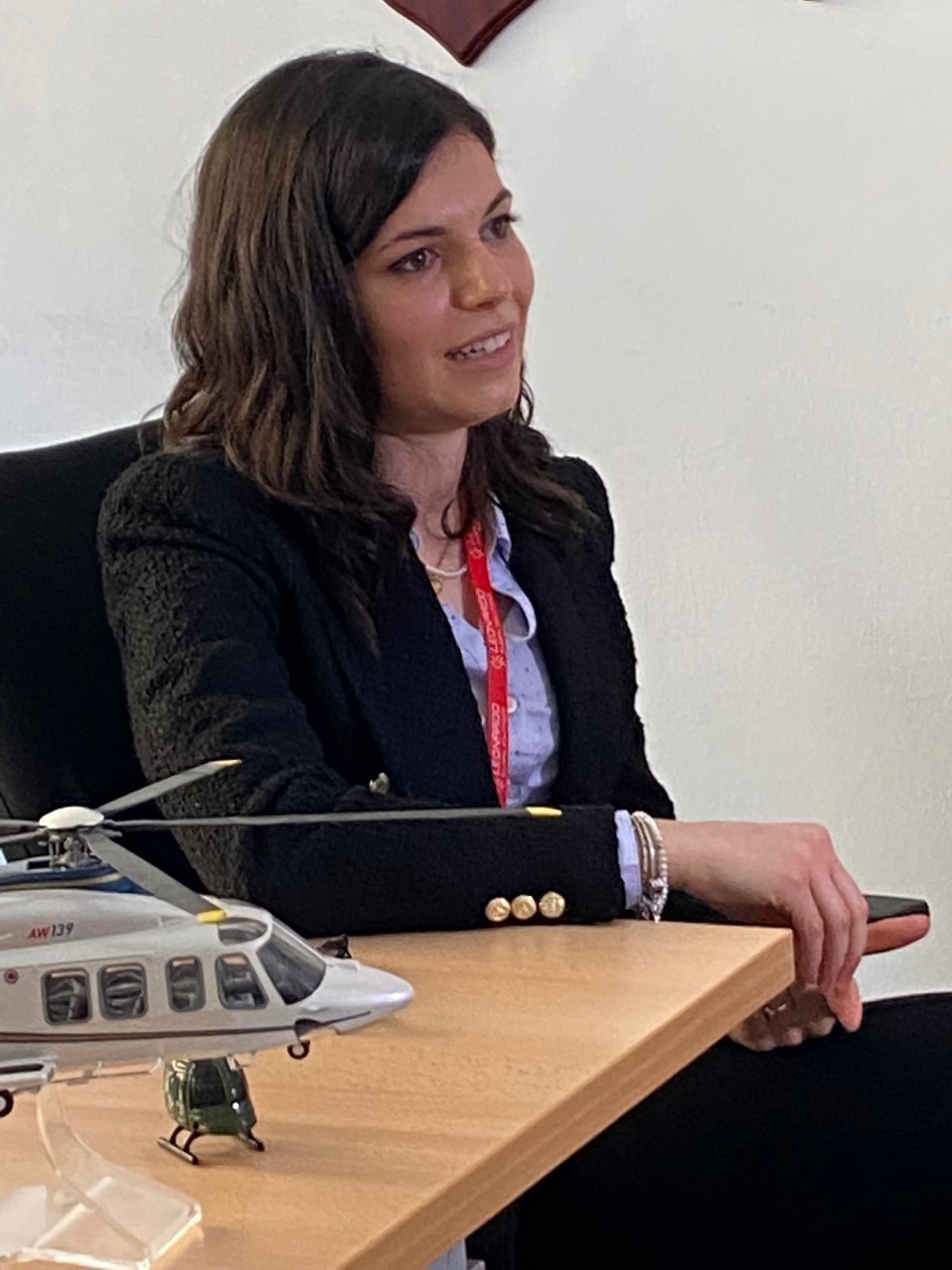Having graduated in 2019 with a postgraduate degree in business economics at “Sapienza” University of Rome, Sara Mancini, who won a scholarship from the company, undertook a second-level Master’s in “Procurement management - Approvvigionamenti e Appalti” at Tor Vergata University of Rome. She currently works in the Procurement & Supply Chain Business Unit, in Standard Direct Purchases and Production.
Why did you decide to study a Master’s?
At the end of my traineeship in accounting, I felt that I wanted to expand my range of skills and knowledge, delving deeper into subjects that I had only slightly touched upon during my studies. This led to my decision to enrol for a Master’s in “Procurement management - Approvvigionamenti e Appalti” at Tor Vergata University of Rome. Furthermore, what really struck me about this Master’s was, on the one hand, the large number of institutional partners who have chosen to invest for many years in training us young people and, on the other hand, the presence of high-profile lecturers from both the academic world and the professional world of public administration and companies. I found myself immersed in a stimulating environment full of multidisciplinary issues, where people of different ages and with all sorts of academic and professional backgrounds each brought their skills and abilities to share them with the group and to allow each person to grow. This variety, both in terms of training and experience, allowed us younger students to learn from examples of real problems which our more experienced colleagues have already had to tackle.
What did you do after the Master’s?
Only a couple of months after the end of my Master’s lessons, I was lucky enough to start working for Leonardo Global Solutions in the Procurement & Supply Chain Business Unit.
More specifically, I work in the Standard Direct Purchases unit and handle the procurement of standard components for helicopters. This gave me the chance to put many of the theoretical concepts I had learned during my Master’s into practice and to integrate them with the solid experience of my colleagues who shadowed and supported me during my work.
Almost one year since the start of my experience at LGS, I can say that I have come to understand how my Master’s laid solid foundations for my professional development which, however, is only just beginning. There is still so much I have to learn about the world of procurement which, as it is very fast-paced by nature, is constantly evolving and therefore requires a proactive approach to continuously update your skills.
What is procurement?
Before my Master’s and my professional experience here at Leonardo Global Solutions, the word “procurement” for me generally meant the world of business purchases as “simple” sourcing of goods and services.
I can now say that procurement is much more. It is a world of professionals who look after the entire procurement process down to the smallest details; a process that starts by analysing many variables including the purchasing requirements of the client, the product categories, the characteristics of the products and services being supplied, their availability on the market and any possible sources of supply.
To be able to do this in the best way possible, procurement experts must have multidisciplinary skills.

Do you think this sector has potential for expansion?
I think that companies now realise how managing purchases efficiently and effectively can increase their competitiveness on the market and become the key to long-term survival and growth. Furthermore, recent economic crises have forced public and private companies to cut out waste, optimising their purchasing processes.
This is why procurement experts have become highly sought-after people and companies are deciding to invest more and more in this corporate role. From this point of view, LGS can represent a shining example of this trend. In fact, it oversees the entire procurement process for “core” and “non-core” product categories for the whole Leonardo Group, working to help reduce operating costs, to streamline and control expenditure, and to oversee and improve the efficiency of any relative processes through centralised management of procurement activities and any procurement support services.
In your opinion, what is the role of professionals in the sector?
The pandemic devastated and turned all economic sectors upside-down and procurement is no exception. This is especially the case for international supply chains and so, in particular, global supply capacity and logistics.
In this highly unstable socio-economic situation, procurement experts are facing greater challenges. We are asked to make procurement processes increasingly flexible, sustainable and optimised, to diversify the supply chain making it even stronger and more resilient, and to operate with a view to improving the efficiency of all purchasing processes, guaranteeing cost control that never sacrifices quality.
All companies now find themselves, more or less directly, having to deal with two risks: the lack of availability of raw materials, semi-finished products and finished products, and the risk of default from suppliers, which leaves the huge task of finding and certifying new ones.
I therefore think that the real added value which procurement experts can bring to their companies will be the ability to make swift decisions that they can adapt to the suddenly changing scenario they will be working in thanks to efficient data analysis of their supply chain.

